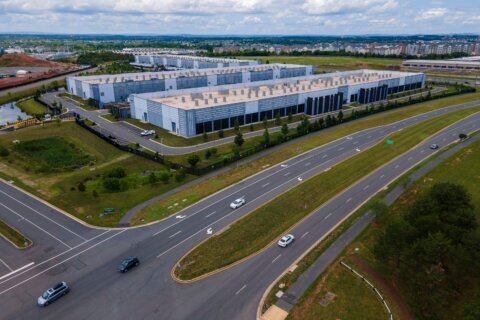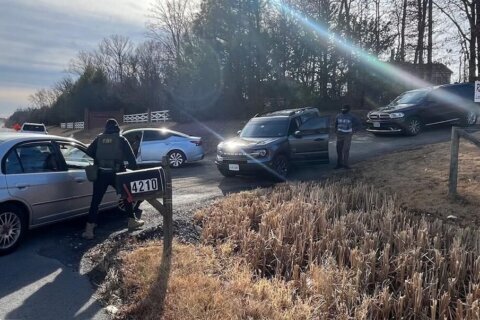This article was written by WTOP’s news partner InsideNoVa.com and republished with permission. Sign up for InsideNoVa.com’s free email subscription today.
This article was republished with permission from WTOP’s news partner InsideNoVa.com. Sign up for InsideNoVa.com’s free email subscription today.
Prince William County supervisors are set for the first test of their stance on a potential 7% increase in real estate tax bills for county homeowners.
The Board of Supervisors will vote on fiscal 2022 tax rates to advertise for a public hearing during its meeting on Tuesday.
County Executive Chris Martino has proposed a $1.35 billion budget for fiscal 2022, which starts July 1, along with a $1.02 billion six-year Capital Improvement Program. The capital program includes $224.8 million for the upcoming fiscal year.
Residential real estate and personal property tax rates are not proposed to increase, although the average homeowner will pay more due to higher assessments under the spending plan.
Tuesday’s meeting will be the first chance for supervisors to consider lowering the rate, but the board will not be bound to whatever rates it advertises for a public hearing. The board can adopt a lower rate than advertised, but cannot exceed it.
The real estate rate is proposed to remain at $1.125 per $100 of assessed value, but rising property values are expected to increase the average residential homeowner’s tax bill by $306, according to county staff. The rate sits at $1.125 per $100 of value.
The budget proposal says residential real estate values increased by an average of 7%, while commercial real estate values dropped an average of 4.5%. The increased assessments would result in an effective tax increase for residential properties, but a drop for commercial.
For example, a home valued at $400,000 in 2020 would be worth $428,000 for tax purposes in 2021, at a 7% increase. If the real estate tax rate remains the same, the homeowner’s taxes would go up from $4,500 to $4,815.
Budget Director David Sinclair has said the real estate tax rate would need to drop to around $1.05 per $100 of assessed value to avoid the effective increase. Reducing the rate, he said, would cut proposed revenues by $51.2 million, of which $29.3 million would come from the allocation to the school division, with the other $21.9 million going to the county’s general fund.
Supervisor Jeanine Lawson, R-Brentsville, made a motion at the board’s last meeting to advertise a real estate tax rate of $1.05, but rescinded it after Supervisor Andrea Bailey, D-Potomac, asked for the board to have time to review the proposal and the rates.
In an email to constituents, Supervisor Yesli Vega, R-Coles, said she supports lowering the rate to $1.05.
“I know it’s abnormal for a government official to want to give back some power to the people, but it goes without saying that most Prince William County families need the money more than we do right now,” she said.
In a newsletter, Supervisor Pete Candland, R-Gainesville, opposed the increased tax bills, citing the economic impact of the coronavirus pandemic.
“Some Supervisors think homeowners are fine paying higher taxes, and local renters aren’t even impacted by higher assessments,” he wrote. “However, we know the truth that a higher home value doesn’t help those of us who aren’t selling, and renters pay higher rents because the increased cost is passed on to them.”
The personal property tax, which primarily applies to vehicles, is proposed to remain at $3.70 per $100 of value.
The spending plan calls for a $1.60 tax per $100 of value on business computers and peripheral equipment, a 25-cent hike over the current rate. That levy primarily applies to data centers. Vega has floated the idea of raising the rate to $2.10, or halfway to the levy in Loudoun County.
The proposal also includes a 30-cent per pack tax on cigarettes, estimated to generate $3 million in revenue. The county currently does not have a cigarette tax.
The Board of Supervisors meets at 2 p.m. Tuesday. The tax discussion will occur during the evening portion of the meeting, which starts at 7:30 p.m.







